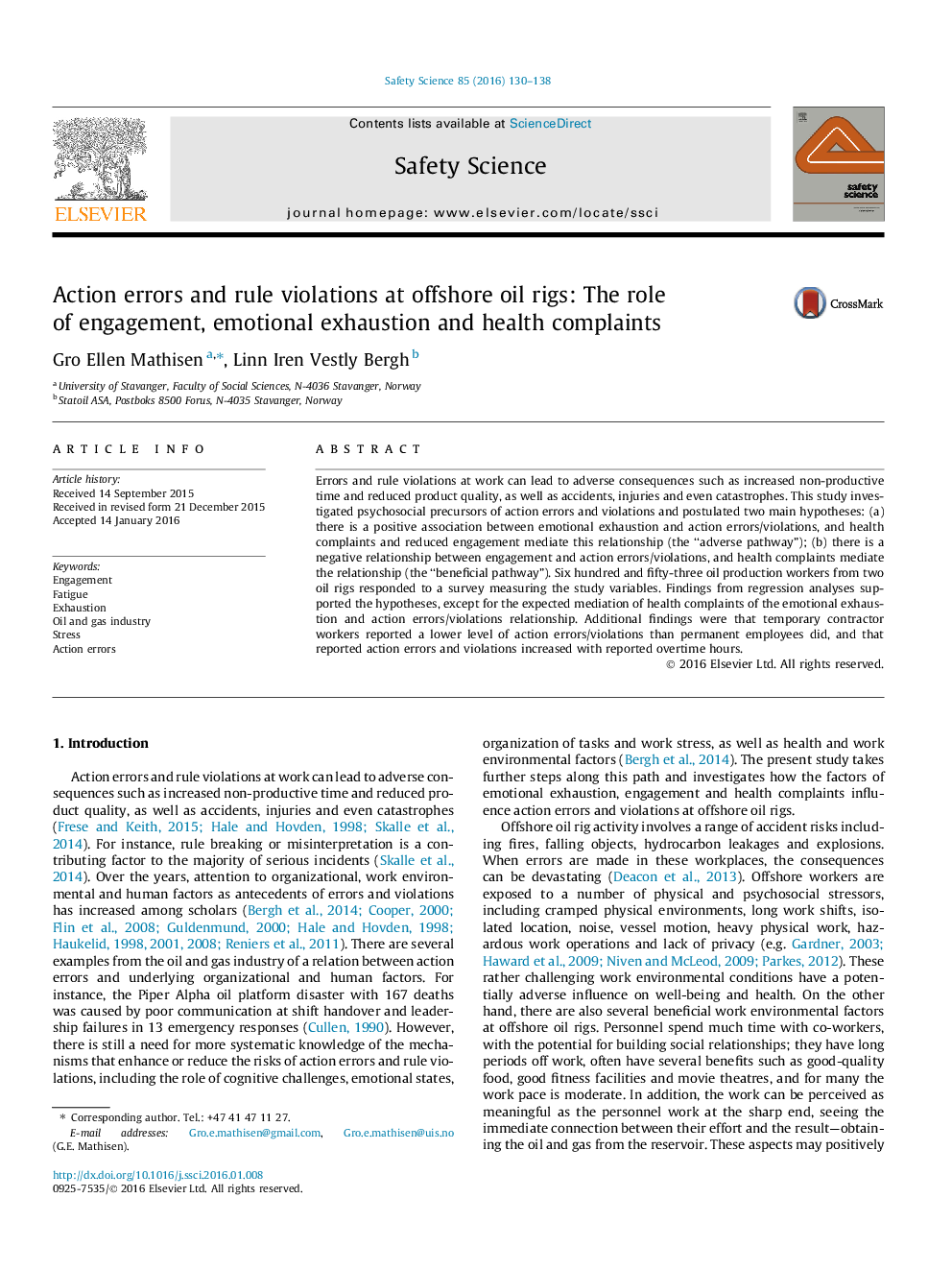| Article ID | Journal | Published Year | Pages | File Type |
|---|---|---|---|---|
| 6975428 | Safety Science | 2016 | 9 Pages |
Abstract
Errors and rule violations at work can lead to adverse consequences such as increased non-productive time and reduced product quality, as well as accidents, injuries and even catastrophes. This study investigated psychosocial precursors of action errors and violations and postulated two main hypotheses: (a) there is a positive association between emotional exhaustion and action errors/violations, and health complaints and reduced engagement mediate this relationship (the “adverse pathway”); (b) there is a negative relationship between engagement and action errors/violations, and health complaints mediate the relationship (the “beneficial pathway”). Six hundred and fifty-three oil production workers from two oil rigs responded to a survey measuring the study variables. Findings from regression analyses supported the hypotheses, except for the expected mediation of health complaints of the emotional exhaustion and action errors/violations relationship. Additional findings were that temporary contractor workers reported a lower level of action errors/violations than permanent employees did, and that reported action errors and violations increased with reported overtime hours.
Related Topics
Physical Sciences and Engineering
Chemical Engineering
Chemical Health and Safety
Authors
Gro Ellen Mathisen, Linn Iren Vestly Bergh,
